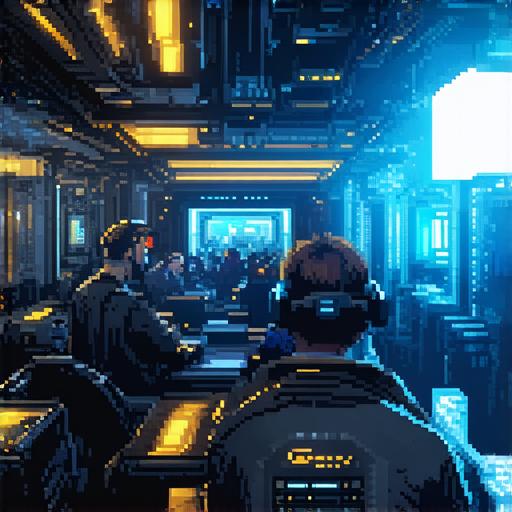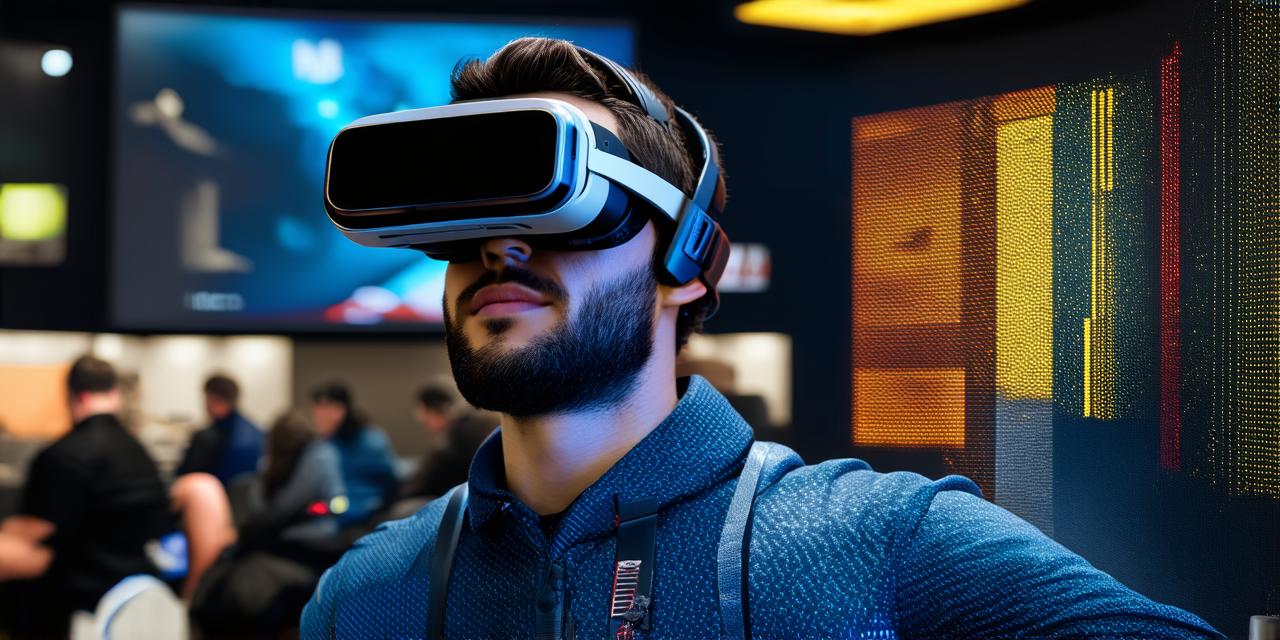Gaming Industry
Virtual reality has revolutionized the gaming industry by providing players with immersive experiences that were previously limited to imagination. VR games allow players to step into a virtual world and interact with the environment in a way that was previously impossible. For example, VR games can simulate combat scenarios or provide players with a realistic driving experience.
One of the key benefits of VR gaming is the ability to create more immersive experiences for players. With VR, players can feel like they are truly a part of the game world, which can lead to increased engagement and a greater sense of realism. Additionally, VR games can be played from anywhere with an internet connection, making it easy for people to play together with friends and family across the globe.

Another benefit of VR gaming is that it allows for more interactive and engaging gameplay experiences. Players can interact with digital objects in a way that was previously impossible, providing them with a sense of agency and control over the game world. This can lead to more immersive and satisfying gameplay experiences, as players feel like they are truly part of the game world.
Education Industry
Virtual reality is also being used in the education industry to provide students with immersive learning experiences. With VR, students can explore virtual worlds and interact with digital objects in a way that was previously impossible. For example, medical students can use VR simulations to practice surgeries or history students can explore ancient civilizations in a virtual world.
One of the key benefits of VR education is the ability to provide students with hands-on experiences that were previously limited by time and resources. With VR, students can learn about complex subjects in a way that is both engaging and interactive. Additionally, VR education can be used to create personalized learning experiences that are tailored to each student’s needs.
Another benefit of VR education is the ability to provide students with a safe and controlled environment for learning. In some cases, VR simulations can be used to simulate real-world scenarios that would be too dangerous or costly to replicate in real life. This allows students to gain practical experience without putting themselves at risk.
Healthcare Industry
Virtual reality is also being used in the healthcare industry to provide patients with immersive experiences that can help them manage pain and improve their overall well-being. For example, VR therapy can be used to treat anxiety and depression by providing patients with a virtual environment that is tailored to their needs. Additionally, VR therapy can be used to treat physical injuries by simulating real-world scenarios that are designed to help patients regain mobility and strength.
One of the key benefits of VR in healthcare is the ability to provide patients with a sense of control over their environment. With VR, patients can create their own virtual world and interact with it in a way that is both engaging and therapeutic. This can lead to increased patient engagement and motivation, as patients feel like they have more control over their environment.
Another benefit of VR in healthcare is the ability to provide personalized treatment plans that are tailored to each patient’s needs. VR simulations can be used to test different treatments and therapies before they are applied in real life, allowing doctors to make more informed decisions about patient care.
Other Industries
Virtual reality is also being used in other industries, such as architecture, real estate, and retail. For example, architects can use VR to design and test new building designs before they are built, which can save time and resources. In the real estate industry, VR can be used to provide potential buyers with a virtual tour of properties that they may not be able to visit in person. This allows buyers to get a better sense of the property and its features, leading to more informed decision-making.
In the retail industry, VR can be used to create immersive shopping experiences that allow customers to try on clothes or visualize furniture in their homes before making a purchase. This can lead to increased customer satisfaction and loyalty, as customers feel like they have more control over their shopping experience.
In conclusion, virtual reality is an emerging technology that has the potential to revolutionize various industries by providing users with immersive experiences that were previously limited by imagination. VR allows users to experience and interact with digital objects in a way that was previously impossible, providing them with a sense of agency and control over their environment. This can lead to increased engagement, motivation, and satisfaction in a variety of fields, from gaming and education to healthcare and retail. As VR technology continues to evolve, we can expect to see even more innovative uses of this powerful tool in the future.
